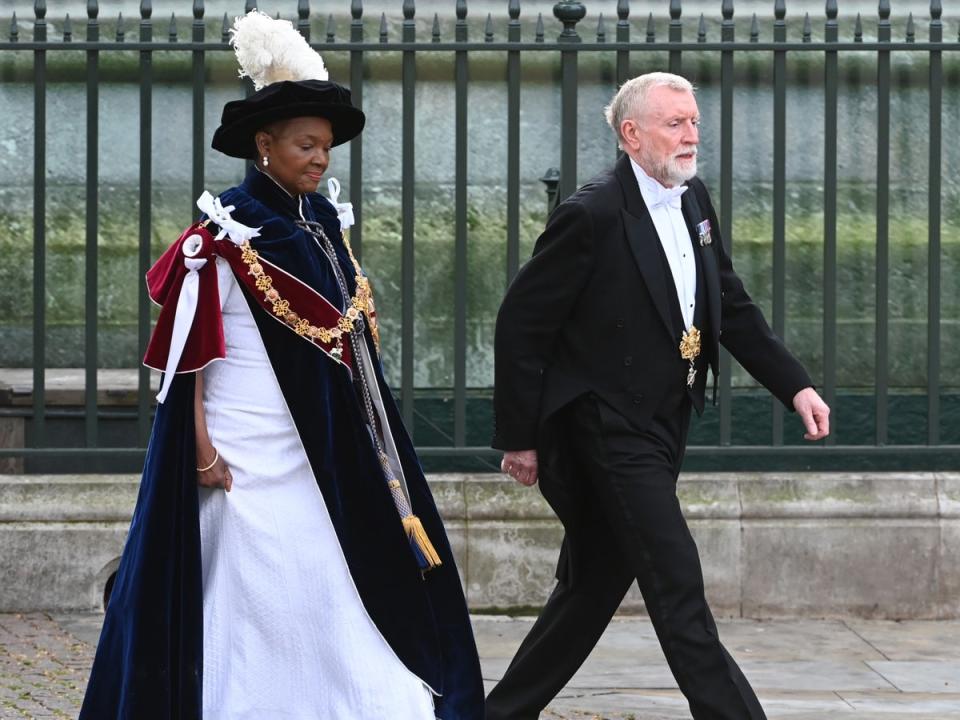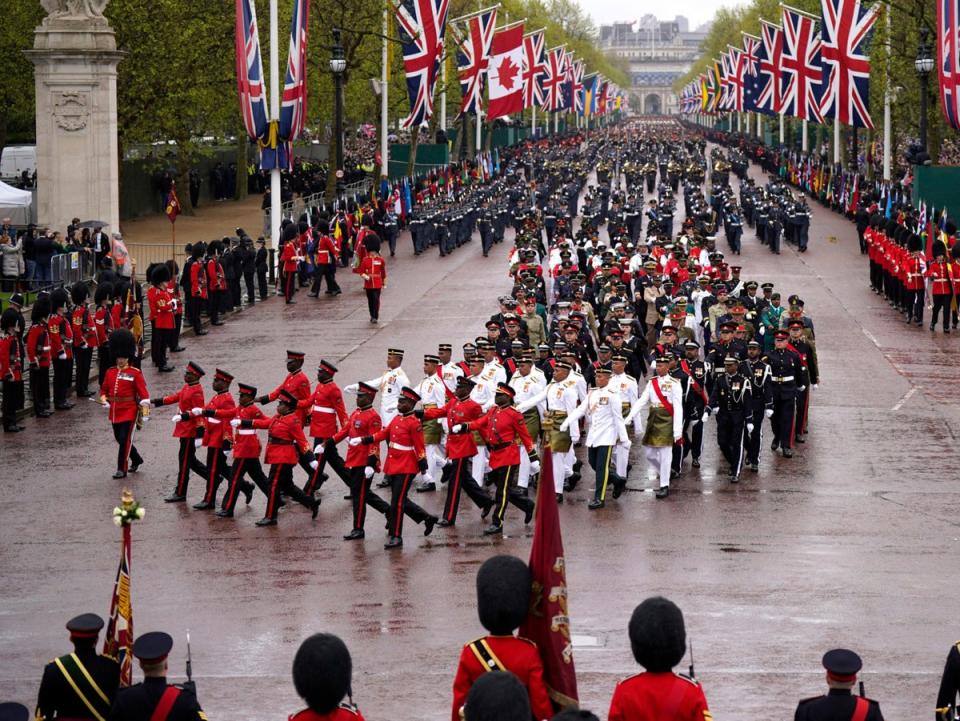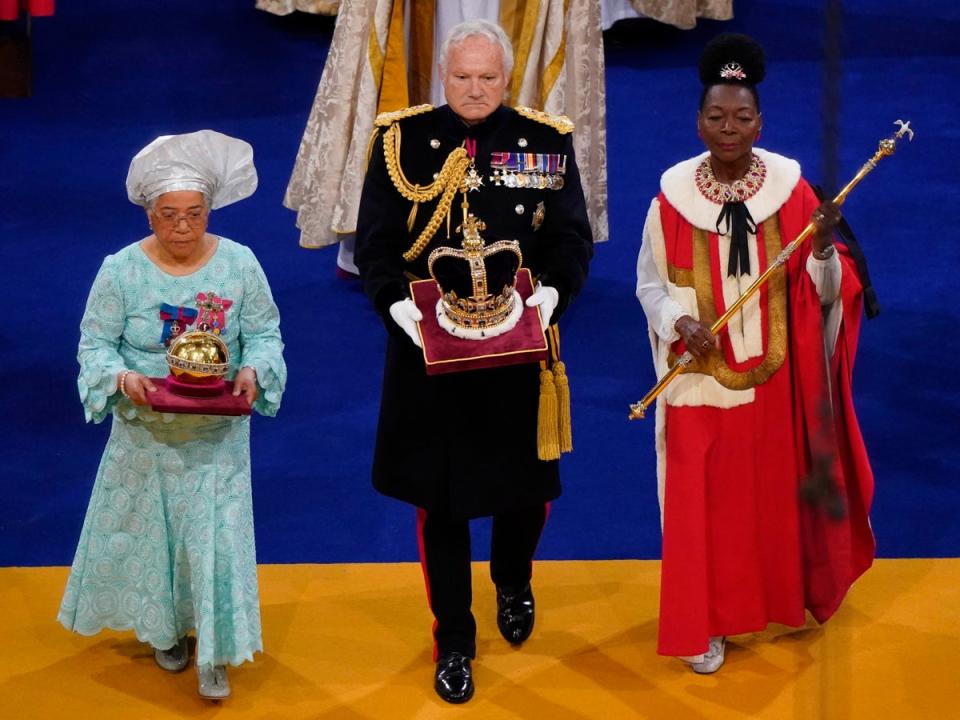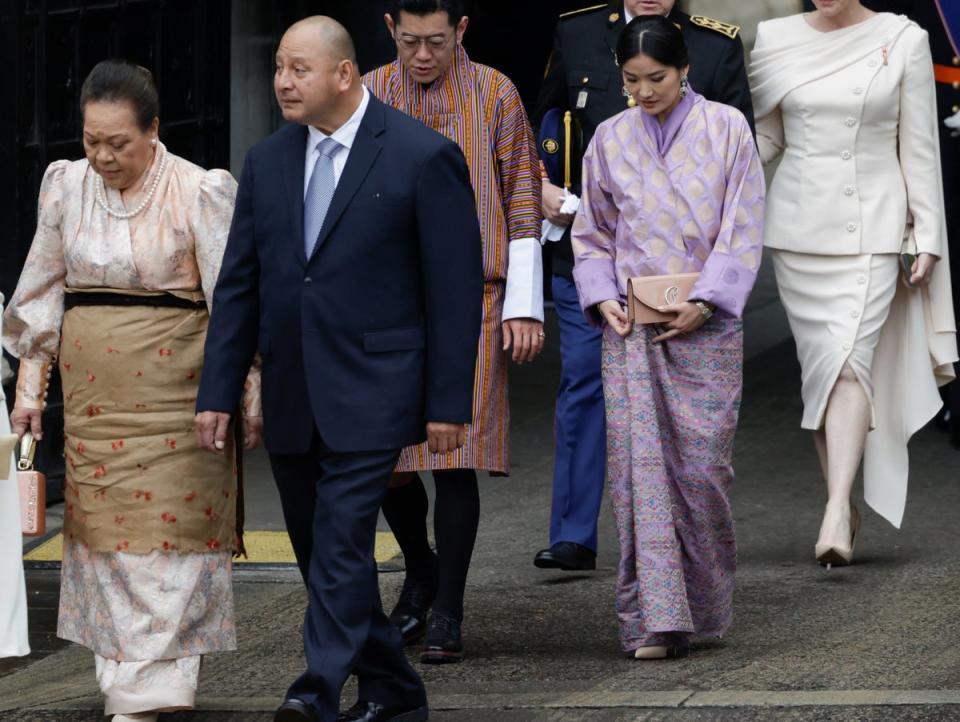How diverse coronation reflected King’s bid to modernise monarchy
The coronation was the most diverse in the 1,000-year history of the ceremony, with a guest list that embodied the King’s determination to modernise the monarchy and reflect a multi-cultural Britain.
Jonathan Dimbleby, a friend and biographer of the King, said this week that Charles would be a “monarch for our times”.
“He sees his role, I think – I have talked about it with him – as being doing his best to achieve a sense of overarching harmony in a very diverse and often rather troubled, very troubled, often divided United Kingdom.” Mr Dimbleby added that he was “a 21st-century person”.

The monarch is the supreme governor of the Church of England and has the title Defender of the Faith, but he has long made known his wish to be a defender of all religions. And for the first time, representatives from the nation’s faith communities played an active role in a coronation in Britain. Muslims, Sikhs and Hindus joined senior figures from the Jewish faith for the presentation of the coronation regalia.
Lord Indarjit Singh of Wimbledon, editor of The Sikh Messenger, presented the King with the coronation glove, a white glove worn on the right hand by the monarch.
Baroness Gillian Merron, chief executive of the Board of Deputies of British Jews, carried one of the royal robes.
The guest list left out hundreds of British lords and MPs, in an active attempt to include people of diverse origins and ordinary Britons.
It was a striking contrast with the 1953 Queen’s coronation, which upheld the ancient traditions of the ceremony.
Historian David Olusoga told BBC News: “I think what you saw today was a strong representation and a huge effort to show the diversity of faith within Britain, one of the things that’s very different between the Britain of today and the Britain of 1953.”

Defence force personnel and police officers from British overseas territories in the Caribbean, including the Royal Anguilla Police Force and the Royal Montserrat Defence Force, joined the procession from Westminster Abbey to Buckingham Palace.
Britain’s most decorated nurse, Dame Elizabeth Anionwu, and Baroness Valerie Amos, the first Black woman Cabinet minister, played prominent roles in the ceremony in the abbey.

Liberal Democrat peer and former children’s television presenter Baroness Floella Benjamin, who carried part of the King’s regalia, praised the King for sending “a clear message” on embracing diversity.
The Bishop of Dover, the Rev Rose Hudson-Wilkin, was asked to play a leading role in the coronation.

She told The Voice: “I hope the legacy will be a lasting one that looks to the future of what kind of a people and nation we want to be as a diverse society where we respect one another and care about each other irrespective of colour, culture or creed.”
Former president of the National Black Police Association Franstine Jones said being invited to the coronation was the “biggest recognition” of her work to ensure diversity.
The Kings and Queens of Tonga and Lesotho were also among representatives from 203 countries invited to the coronation.
Meanwhile, 400 young people involved in charities were invited to watch the ceremony on a screen in a church next to the abbey.
Rhys Mallows, 27, from Cardiff, who was a guest at the coronation, said the service represented a “more inclusive” future for Britain.
Mr Mallows repurposed his family-run gin distillery to produce more than a million bottles of hand sanitiser for emergency services during the Covid pandemic and was awarded a British Empire Medal in 2022.
He said the coronation “symbolises moving on from where we were with the virus into that brave new future”.
“This coronation is very different from past ones and represents a more inclusive, more diverse future,” he added.

